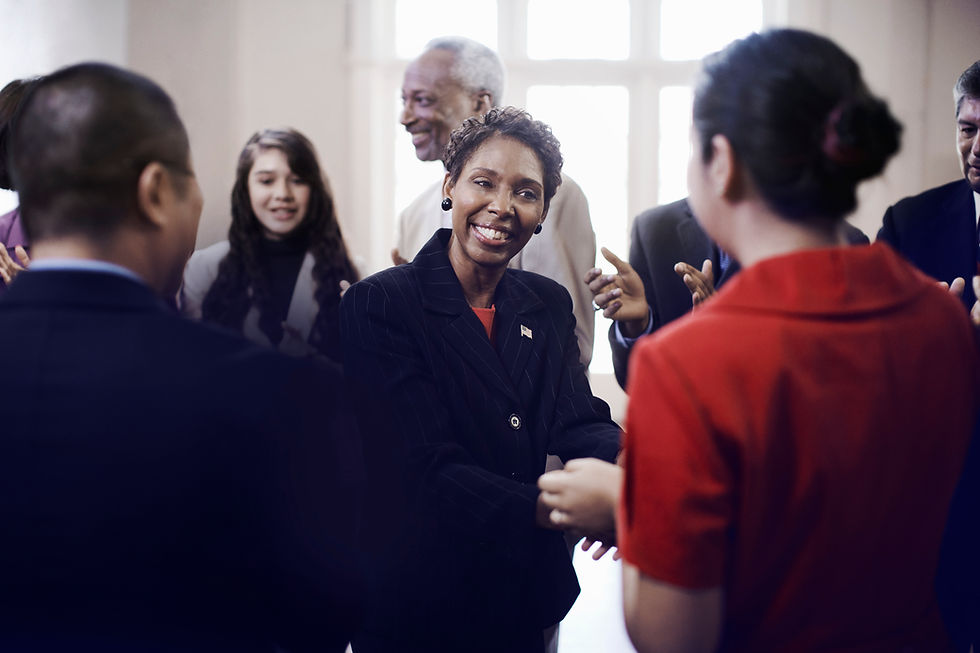How to Become a Local Councillor in the UK: A Guide for Aspiring Community Leaders
- truthaboutlocalgov
- May 26, 2025
- 3 min read
If you’re passionate about your community and want to make a tangible difference, becoming a local councillor might be the perfect path for you. Councillors are the backbone of local democracy in the United Kingdom, shaping the services and policies that affect everyday life—from housing and education to transport and public health.
This guide is designed for those who aspire to step into local politics. Whether you're driven by a desire to improve your neighbourhood, represent underrepresented voices, or influence local policy, here’s what you need to know to get started.

1. Understanding the Role of a Councillor
Councillors are elected representatives who serve on local councils. Their responsibilities include:
Representing the interests of residents in their ward
Making decisions on local services and budgets
Developing and reviewing council policies
Holding the council and its leadership to account
As the Local Government Association (LGA) puts it,
“Councillors make a huge difference to the quality of life of local people and how local issues are dealt with”.
You don’t need any formal qualifications to become a councillor. What you do need is commitment, integrity, and a genuine interest in your community.
2. Who Can Stand for Election?
To stand as a councillor, you must:
Be at least 18 years old
Be a British citizen, a qualifying Commonwealth citizen, or a citizen of the European Union
Be registered to vote in the area or have lived, worked, or owned property there for at least 12 months

You can stand as a candidate for a political party or as an independent. If you choose the former, you’ll need to be selected by your local party branch.
3. How to Get Started
a. Learn About Your Local Council
Each council is different. Some are responsible for a wide range of services (unitary authorities), while others share responsibilities with county councils (district or borough councils). Understanding how your local council operates is essential.
b. Connect with Current Councillors
Reach out to sitting councillors in your area. Attend council meetings, ask questions, and learn from their experiences. Many councillors are happy to mentor newcomers.
As Councillor Antoinette Bramble shared,
“I rarely saw people who looked like me in politics and so became the change I wanted to see”.
4. Engaging with the Community
One of the most critical aspects of being a Councillor is community engagement. You must be visible, approachable, and responsive.

a. Listen First
Before you can represent your community, you need to understand it. Attend local events, knock on doors, and listen to residents’ concerns. Social media can also be a powerful tool for engagement, but nothing beats face-to-face conversations.
b. Build Relationships Across the Board
Engage with:
Residents from all backgrounds
Local businesses
Faith groups
Schools and youth organisations
Charities and community groups
Councillor Arif Hussain said it best:
“I became a councillor because giving something back to the community is extremely important to me. I believe that if we all played our part and worked together we would make our world a better place”.
5. Campaigning Effectively
If you’re standing for election, you’ll need to campaign. This involves:
Creating a clear message about why you’re standing
Distributing leaflets and posters
Canvassing door-to-door
Attending hustings and debates
Using social media to reach a wider audience

The Electoral Commission provides detailed guidance on campaigning rules, including spending limits and legal requirements.
6. The Election Process
Local elections are usually held every four years. You’ll need to:
Submit a nomination form with signatures from local electors
Declare any disqualifications (e.g., bankruptcy or criminal convictions)
Follow the rules on election spending and donations
If elected, you’ll serve a term of four years, during which you’ll attend council meetings, sit on committees, and work closely with council officers and fellow councillors.
7. Life as a Councillor
Being a councillor is a part-time role, but it can be demanding. You’ll need to balance council duties with your personal and professional life. Most councils offer allowances and support to help you manage. You’ll gain valuable skills in public speaking, negotiation, leadership, and policy-making. More importantly, you’ll have the chance to make a real difference.
8. Final Thoughts: Be the Change
Local government needs people from all walks of life—young and old, from every ethnic background, with diverse life experiences. If you care about your community and want to shape its future, don’t wait for someone else to step up.
As the LGA encourages:
“We need people from all backgrounds and experiences who reflect the communities they serve to put themselves forward for election”.
Resources to Get You Started





